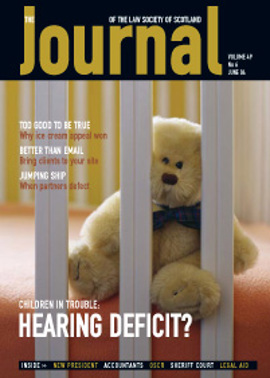Book reviews
This book basically comprises all the principal legal documentation surrounding the Lockerbie trial and appeal which took place at Kamp van Zeist in Holland (temporarily a piece of Scotland!) from May 2000. Here the reader will find: (1) the aircraft accident report on the aircraft Pan Am flight 103 which exploded over Lockerbie while travelling from Heathrow to New York on 21 December 1988; (2) the fatal accident inquiry report from Sheriff Principal John Mowat; (3) the Scottish petition warrant against Abdelbaset Ali Mohmed Al Megrahi and Al Amin Khalifa Fhimah; (4) the US indictment; (5) the international agreements involving the Libyan Government, the UK Government, the US Government, the Netherlands Government and the United Nations; (6) the BBC petition to televise the trial; (7) the Scottish court’s decision on the preliminary objections taken by the defence; (8) the judgment of the trial court; (9) the appeal judgment; (10) reports by UN observer Hans Kochler; (11) various decisions of the International Court of Justice at the Hague in the Lockerbie litigations.
All of these documents Professor Grant prefaces with a most useful explanatory note setting them in context for those unfamiliar with public international law.
In addition, Professor Grant writes a 53 page introduction explaining the international legal history of the case. Professor Grant is uniquely well placed to undertake this task. He is a professor at Lewis & Clark Law School in Portland, Oregon, USA. He is also Professor Emeritus of Public International Law at Glasgow University. His own direct knowledge of the Lockerbie case comes from his many visits to the court as head of Glasgow University Law School’s Lockerbie Trial Briefing Unit – a group of academics who volunteered their services to assist the international media in interpreting and explaining the Scottish prosecution system and its workings.
Professor Grant is too modest to point out that the whole idea of the Lockerbie Trial Briefing Unit was his own! Those, like me, who were privileged to be asked to play a part in the team will always regard the experience as one of the highlights of our legal lives. But more than that, is Professor Grant’s vision of an independent body of academic lawyers giving unbiased interpretation to the international media not a model which should be followed for the increasing numbers of international court cases in which citizens from many countries have an interest? Might the governments of interested states not consider this a project worthy of their support?
Professor Grant’s book draws the various strands of this legally and politically complex history together. It makes fascinating reading. It deals with an area of law which is today at the very forefront of the minds of all of us, lawyers or not, in the western world. How are we to deal with those suspected of acts of international terrorism? The International Criminal Court is not to be an answer. It will not deal with terrorism cases. So the Scottish court in the Netherlands is, at the moment at least, a model for the way things will be done in the future. Professor Grant’s book is an important contribution not only to mark and interpret the Lockerbie trial history, but also to anticipate how the law will tackle this most pressing of dilemmas from here on.
In this issue
- A year full of challenge
- EU is for opportunity
- Hearing a new tale
- Ice cream verbals
- Pull together
- All change
- Partners... no more
- Death by email
- Get a service
- Preparing to go
- OSCR for directing
- Education generation
- Limits of Anderson appeals
- Through a glass less darkly
- Giving within your means
- Catching all helpers
- Scottish Solicitors' Discipline Tribunal
- Book reviews
- Mining Reports Service update
- The new law of real burdens






